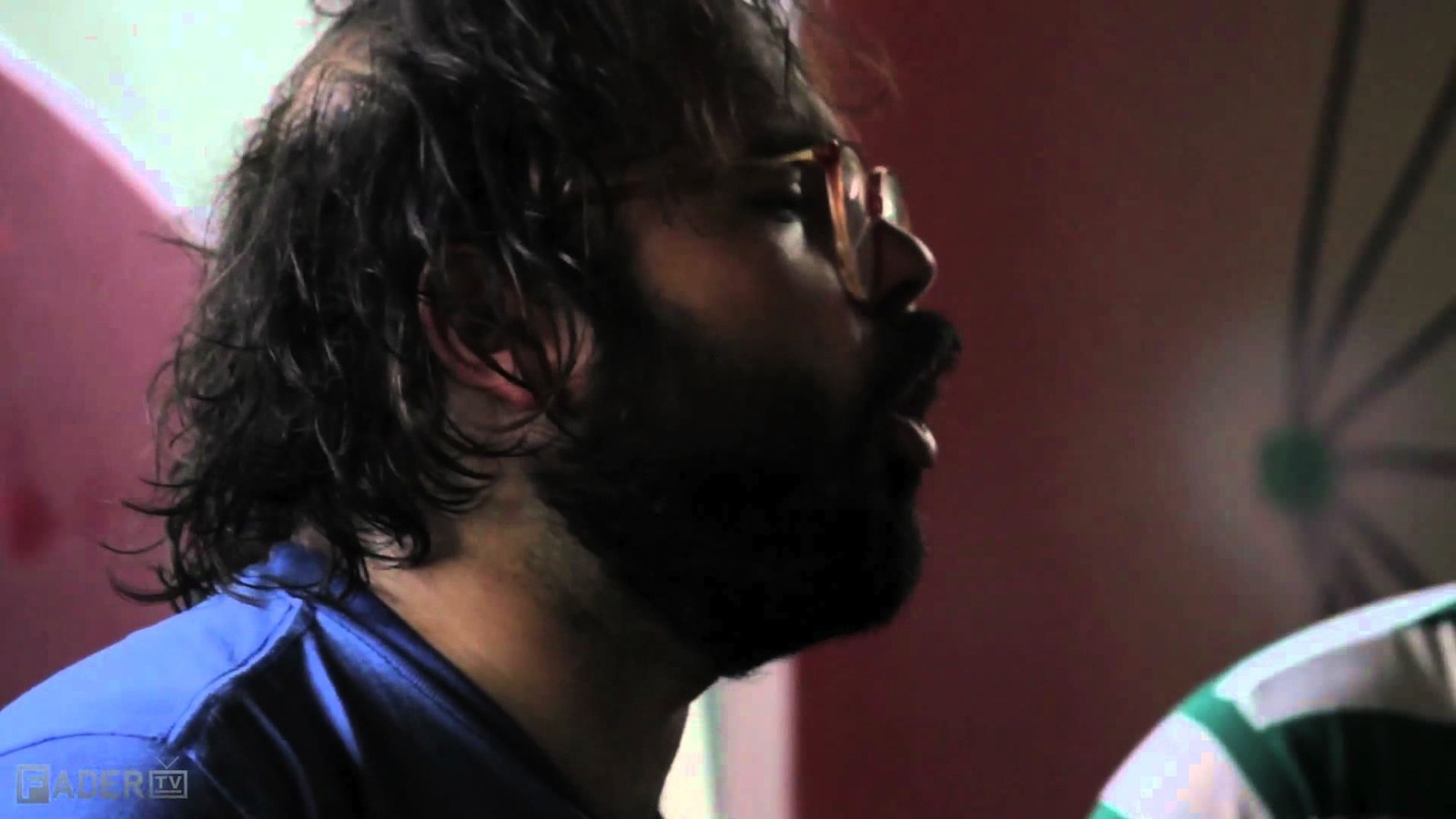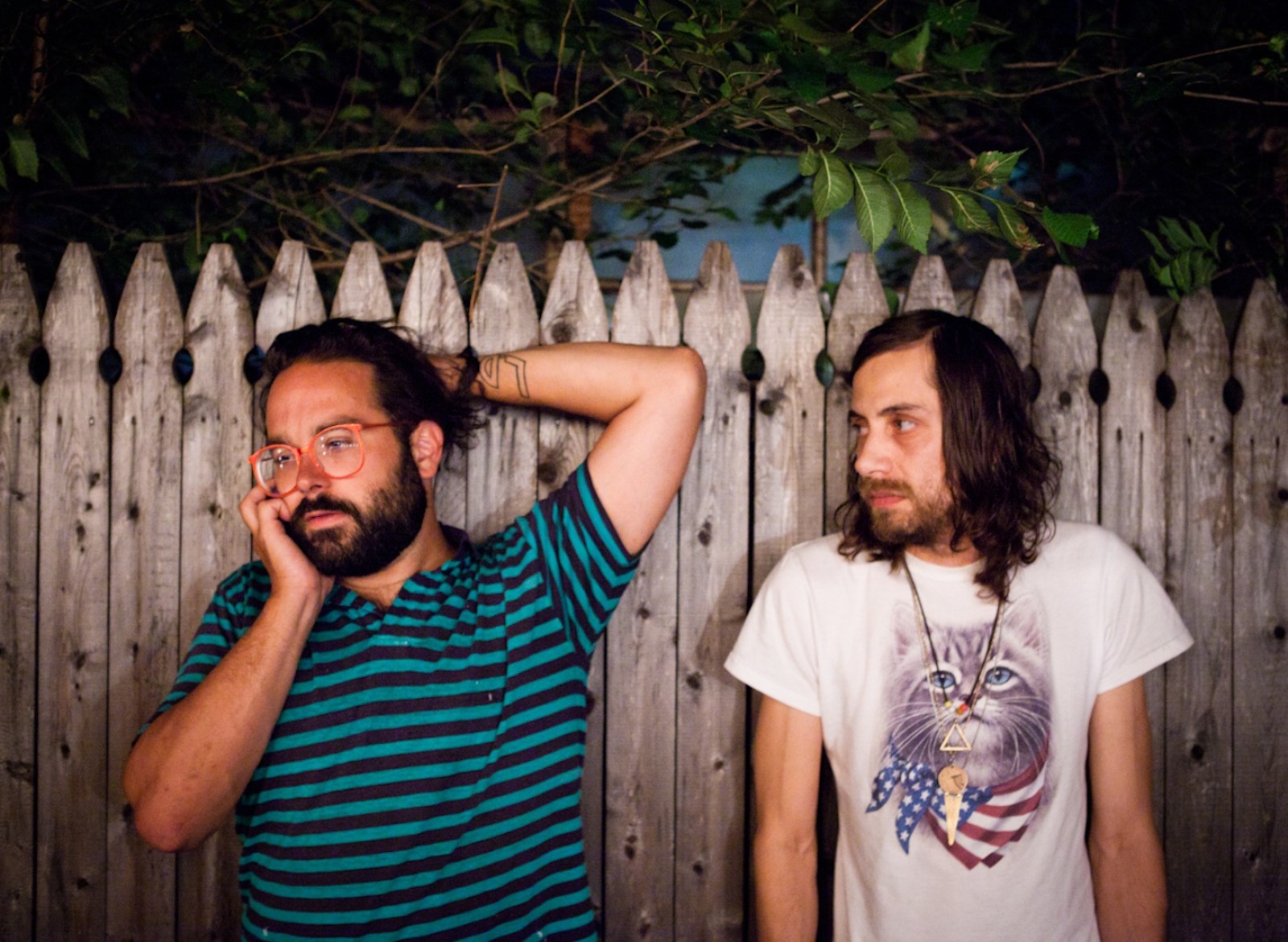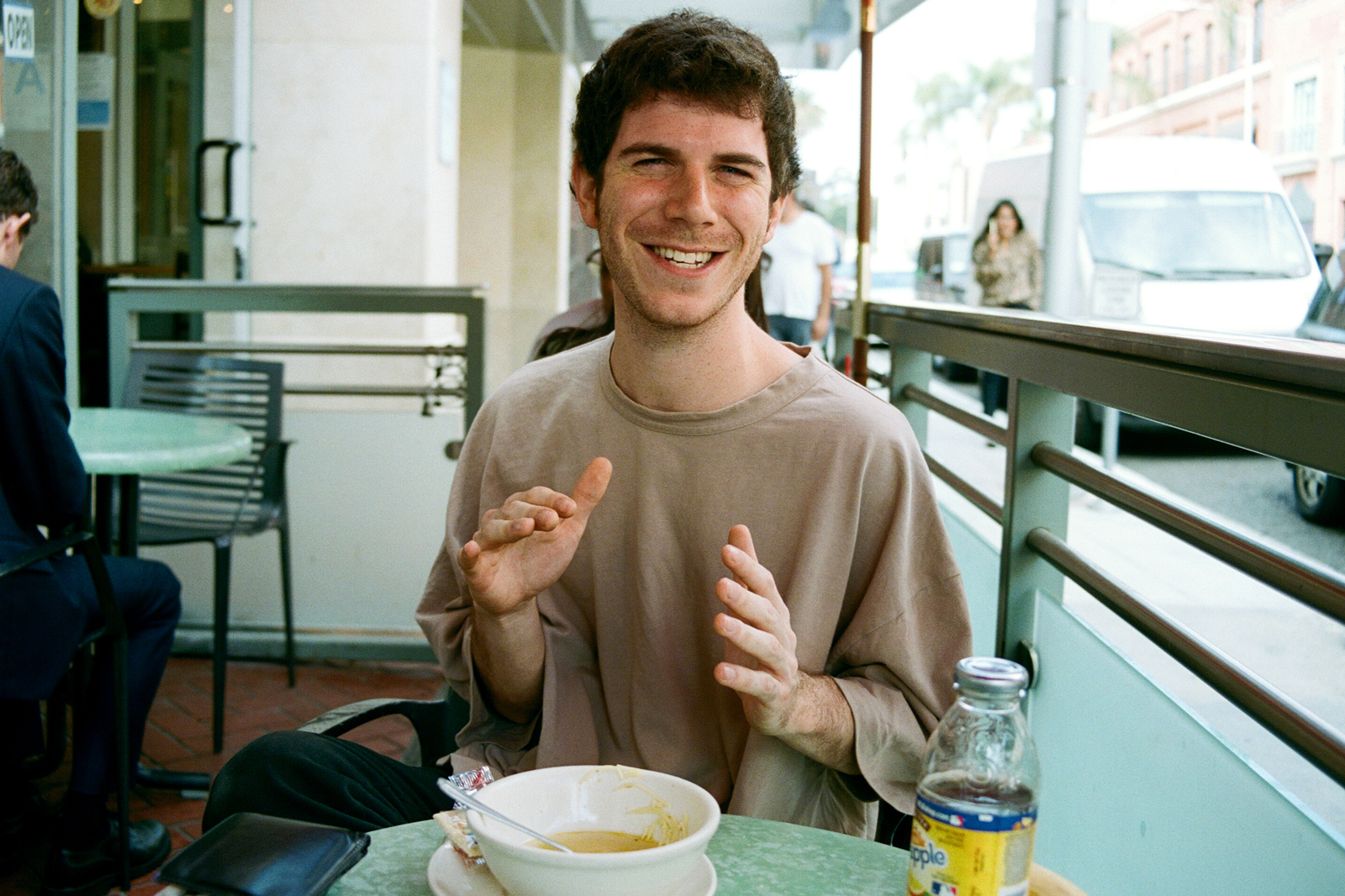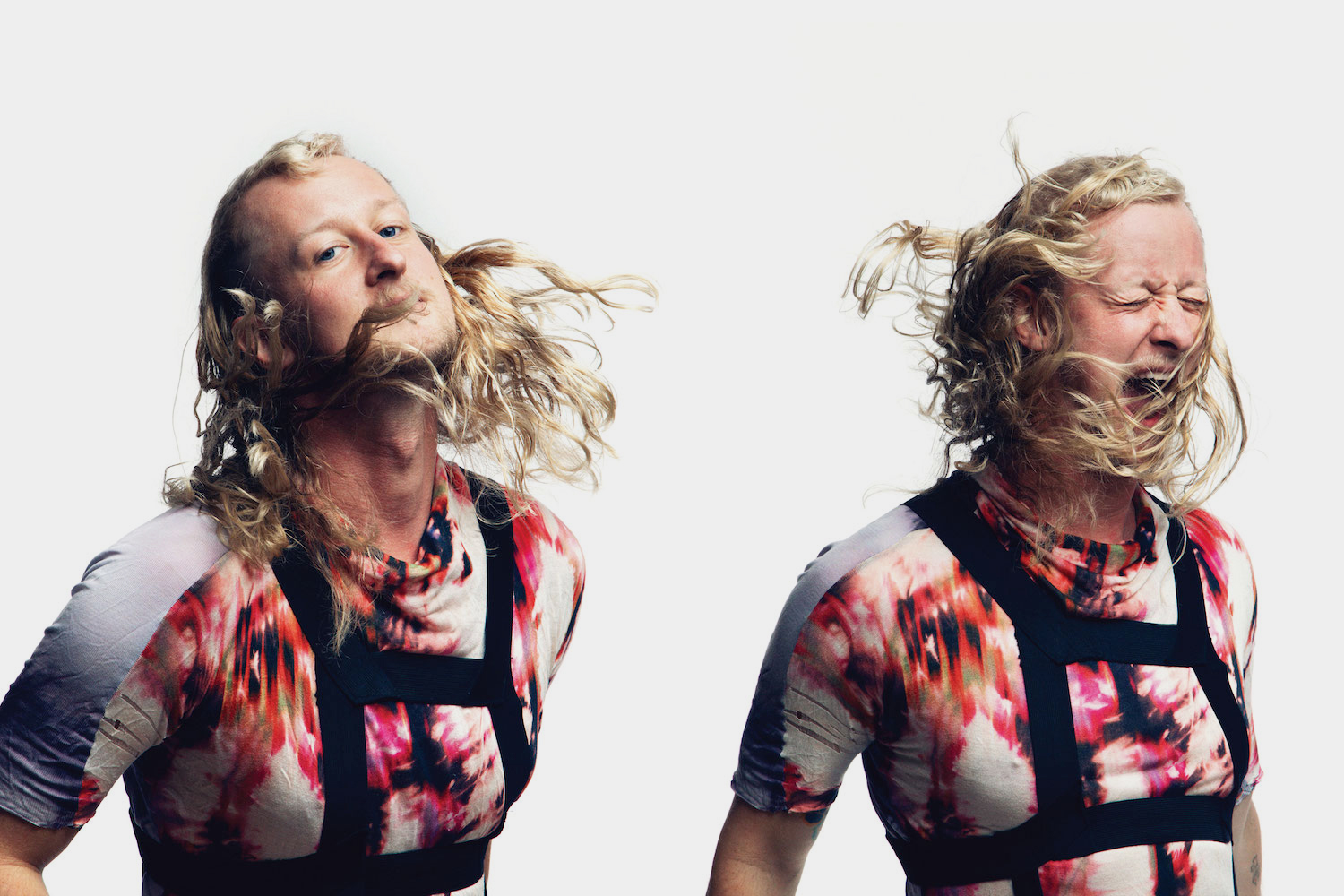Text: Monica Uszerowicz
Photos courtesy of Kalim Armstrong and Hanley Banks
It’s been said before, maybe too often: The Wild Yaks are as known for their locally archetypal status in Brooklyn as they are for the surly, cathartic nature of their songs, which are less songs, really, and more anthems.
To be frank, though, they’re not sloppy at all, and those songs aren’t quite made for drunk belting; instead, they are exceptionally raw, emotive pieces of poetry, the kind you want to yell out during both your darkest and brightest moments. It’s heartbreaking and romantic and utterly, admirably, violently sincere. It’s also really fun: dancing as purging, dancing because you’re sad, dancing because you’re happy. And more of it is slated to come, as the guys started recording a new album the day after this interview took place—potentially entitled Days of Solid Control.
We spoke with frontman Rob Bryn on the phone—approximately twenty-four hours before the recording of the new album began—about poetry and anguish and not being nervou
I know you played music before you were in Wild Yaks. When did it become clear to you that you wanted to make music with other people?
I played guitar from when I was fifteen till I was thirty, and the only people who ever heard me play were the rare girlfriends I had during that time and maybe my roommates. I never thought singing in front of people was something I would do; I just didn’t think I was good at it. And then one day I was at this house party and folk bands were playing in the backyard. There was an acoustic guitar sitting there and I was like, “Do you guys mind if I played some songs?” I played five or six, and people loved them. I got a great response. I thought, “This is awesome. This is something that I can do.”
After that, I started getting invited to singer-songwriter parties that were really cool. I still had some insecurity about my guitar-playing and my singing, so I got more people in the band; at one point I had ten people. I wanted to say something so strongly, and I thought, “Maybe if ten people are yelling this thing at the same time, it’ll be stronger.”
It is really strong. How did you form the Wild Yaks, then? What was the next step after you realized you needed more people?
It kind of happened in skips and starts. I would put a band together for a show, but being in a group, you think, “Oh, that guy’s not right; I have to change the band because of that guy,” or like, “I want you to do this and you don’t want to do this, and now we’re fighting.” It kept happening like that—skips and starts; it had different names a couple times.
It finally clicked when I was working at the shoe market in Williamsburg. It was the only shoe store there at the time, so I was meeting every single hipster person in Williamsburg. Another guy that worked there became the drummer, and we just started getting shows. He got committed. He told me he wanted to be in the band for a year, but it took him a year to come to one practice. We played a house party and a writer from Fader was there, and he wrote an article on Fader about us when we had barely been a band for a couple months, and, really, none of us could play. It was like, “Wow, are we famous now?” We weren’t, but…
Is that why everything I’ve ever read about the Wild Yaks says you went through so many break-ups and reunions? Is it because of that early process of changing everything around?
At one point, we had one long run; it was maybe the best run we had. We had three shows coming up and had to practice in one weekend. It was like, “We have two days to practice these shows, and if anyone gives me a problem about any of the practices or any of the shows, I quit, it’s over.” I sent the practice schedule for that week, and the complaints came in, and I was like, “Fuck it. The whole world says ‘no’; I don’t need the people closest to me saying ‘no.’” Then I actually broke up the band for six months. Then a label approached us and said, “You left a bunch of songs unrecorded; why don’t you finish them and make a record?” So I put a different band together and made a record.
The band you recorded with—is that your current line-up?
No. The bass player and the drummer are the same; the other guitar player doesn’t play with us anymore. It’s kind of a three-piece. From a height of having ten people, it’s the smallest band I’ve ever had, maybe because of this increased confidence in myself. I don’t feel I need all types of people around me anymore. You can start doing anything and grow in it. It’s a good feeling for me.
It sounds like the changes in the band mirrored the changes in your personal life or growth.
Absolutely. I think that’s what being an artist is—I’m trying to relate it to my personal experience. The art I make and the person I am are not separate.
Did you write before you formed the band?
I always wrote poetry, and I always dreamed I was going to be a novelist. I moved to L.A. after college and couch-surfed there, and wrote a couple screenplays that nothing happened with. For me, it was always about words. When I first moved to Brooklyn, I was writing plays and met a girl who was willing to produce them. We started putting up these three-hour plays that were dialogue the entire time. We would just write and no one would edit me. There would be huge casts, thirty-three acts. People loved them and they were successful, but they were so hard to put up, and once you put them up, you realized they weren’t even right. With music, you can write a song and just play it every night.
Knowing that you were a writer, I like that these songs are so expressive. I know that people have written about you guys and described you as a drinking band, a yelling band. But, I feel your songs more closely resemble the moment you have a bad or sad feeling, and want to yell about it, and once you do, it isn’t so bad anymore. It becomes more beautiful and strong.
That’s the ethos of the band—to turn suffering into celebration. This is how I feel my songs are almost like abstract expressionism, like Jackson Pollack. That’s what’s exciting about abstract expressionism—what Jackson Pollack was doing is frozen in time, and we can see and relate to him doing it. Almost all of the songs were written by me while I was in anguish. I’ve been weeping while I wrote almost all of the songs. I feel like I’m able to encapsulate that feeling somehow. It’s not in the words—it’s in between the words, in the music somewhere. We’ve been feeling that depth of emotion and making it fun, and wanting people to dance. It’s that feeling: I can feel strongly good or bad, but it didn’t kill me.
Right. It isn’t so much the lyrics, but the fact that you’re saying them in that way. Sometimes people are uncomfortable expressing themselves in earnest—whether through art or conversation. It’s cooler to be sarcastic.
That’s why I’ve lived my whole life feeling like a nerd. It feels like everything has to be snide or self-referential or self-understanding like everyone is in on some joke that you’re not in on, and I still just want to yell and scream. I think and I hope that there is a way to do it intelligently so that it isn’t maudlin or melodramatic. I don’t want to be corny, but I risk it sometimes.
Are you currently still living in Rockaway Beach?
I used to and will live there again, but there’s nothing to do there in the winter. I just broke up with a girlfriend that I had for more than a year and I was sort of on my own, and I couldn’t be alone in Rockaway all winter. That’s too crazy and lonely for me. I rented a room in Greenpoint, so I’m hanging out in Williamsburg again and having fun.
I want to backtrack a little. I read somewhere that you went to a military academy and discovered marching music there.
I did! I love marching band music with the actual band, but I also love the cadence, the call-and-response. Marching with men and singing in unison is like…I’m not gay, but I’m close, I think. I loved it.
I heard you’re recording a new album; can you tell me about it?
We’re going to record with Kevin McMahon, who used to work with The Walkmen and Swans. We never had a real producer; I’m totally excited and totally scared. We’re not ready. Believe it or not, part of my musical background is a love of precision, and we’re not ready. Some of the songs aren’t done being written. I’m in a funny moment. If you had talked to me two days ago, I would have been super optimistic, and now the day before, I’m like, “What am I getting myself into?” But I’m essentially a ham. If someone points a camera at me, I’m into it. If I go to the studio, I’m going to do something and enjoy it.
What are your newer songs like?
They’re a little about the break-up, a little about the girl, a little about life afterward, because I have a different of love and sex than I did before. They’re also more spacious. It sounds, to me, kind of like Television; the singing is more relaxed. I’m telling stories and singing poetry more. It’s a lot about the drums and the bass being, like New York Caribbean No Wave dance music. I’m excited about it. I want to put horns in and strings on it, and give it an Astral Weeks vibe. It’s tentatively called Days of Solid Control. I wanted to call it Rejoice! God Loves Wild Yaks, but the band said no to that.



